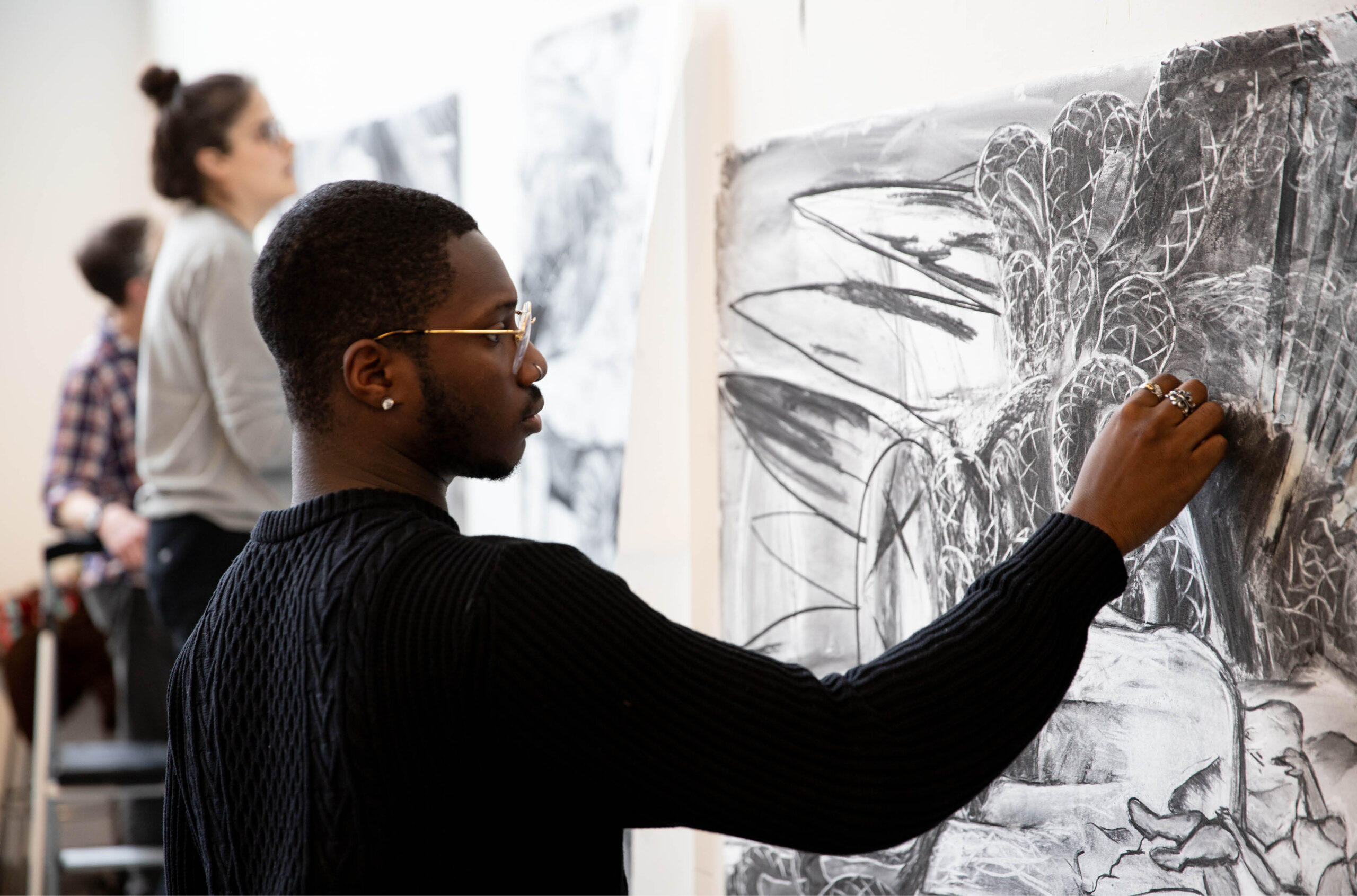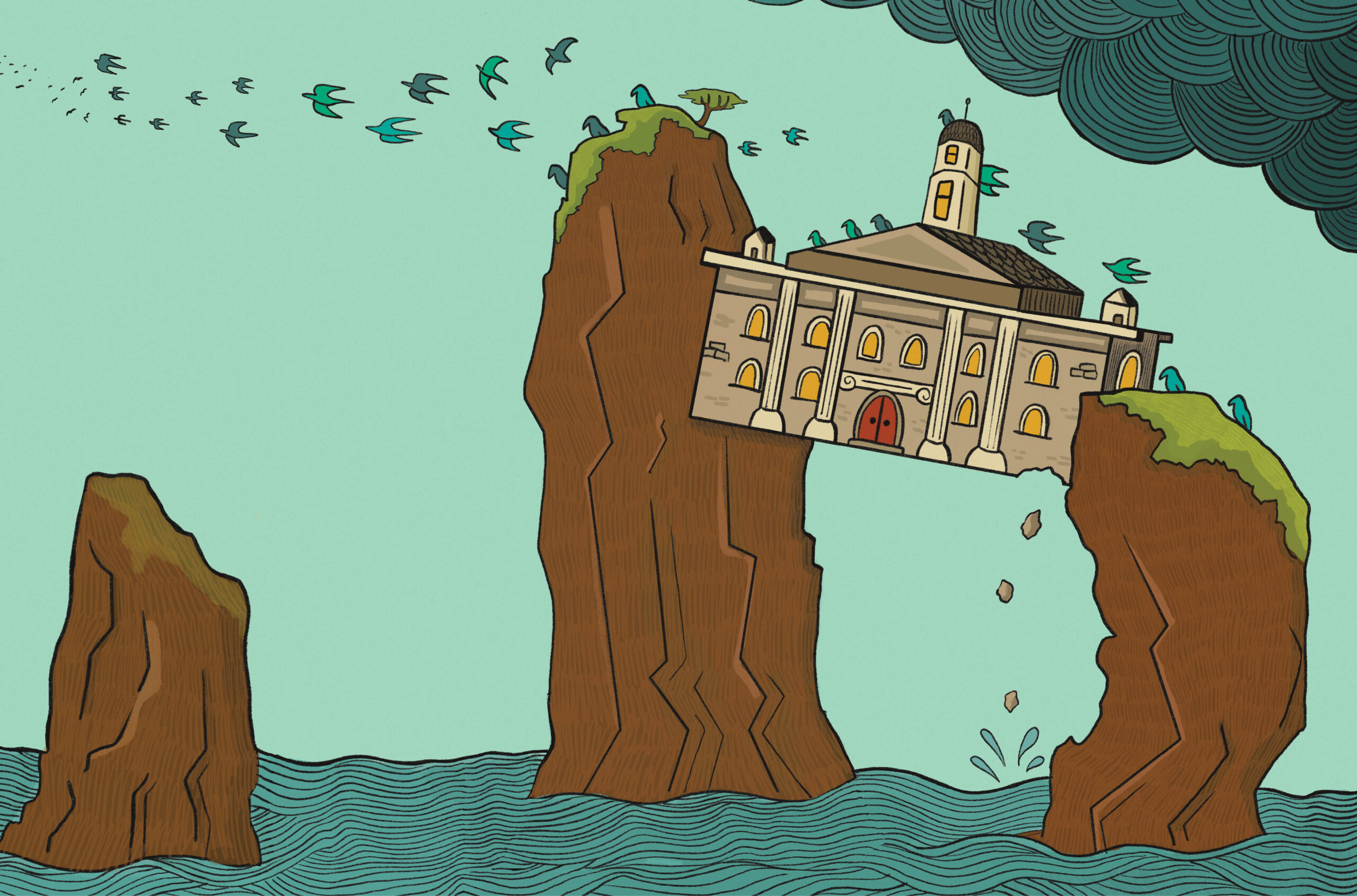Four PhD grads in the humanities tell their stories
None has landed a tenure-track job, and their lives have had plenty of struggle and uncertainty. But, their narratives point to multiple career paths branching out from the PhD.

What good is a PhD in the humanities? The outcome statistics, which tell us how many grads get tenure-track jobs, paint a dispiriting picture. The stories told by PhD grads are often even more discouraging than the statistics. In a recent issue of The Chronicle Review, Herb Childress tells a harrowing story about his own life as a PhD grad who was never able, as he says, to find his way home to a tenure-track job. Dr. Childress’s new book, The Adjunct Underclass, recounts many stories from people caught in the same career- and soul-destroying trap of the casualization of university teaching.
These are narratives we must attend to. But there are other stories that need to be heard. The TRaCE Project, headquartered within the graduate and postdoctoral studies office at McGill University, has been gathering humanities PhD outcome statistics from across Canada for four years. The TRaCE stats paint the same bleak picture about academic placement rates. But, TRaCE also interviews as many grads as are willing to be interviewed, and we post their stories on our website. You will find their names, see their faces and (on the latest postings) hear their voices. The stories provide an account of who these people are, why they undertook to do a PhD in the first place, what they loved and hated about graduate education, and what they are doing now. Some of the stories also sketch out pathways that could lead others toward new careers. They are narrative maps that make visible new kinds of possibilities.
Here are four such stories. Not one of the four people has landed a tenure-track job. Mind you, one was never going in that direction and another changed his mind about a life in the academy. A third, to be up-front about it, hasn’t graduated yet. Their lives have plenty of struggle and uncertainty, but each story is also something like a nostos – the epic journey and homecoming of ancient Greek literature.
Eliza Bateman
First is an Australian, now Canadian, woman named Eliza Bateman. With her father a TV producer and director, and her mother a journalist, she was surrounded in her childhood by books and bookish conversation. When she was 10, her mother took her to see the movie, A Few Good Men. That film turned her head toward law.
 At 18, she started a joint law and humanities program at Australian National University. She didn’t much like the law side, so when she graduated in 2006, she decided to do a PhD in English. She loved language and the play of ideas. But she changed her mind – scholarship funding was drying up, ANU humanities departments were getting squeezed on all sides, and tenure track jobs were nowhere to be found.
At 18, she started a joint law and humanities program at Australian National University. She didn’t much like the law side, so when she graduated in 2006, she decided to do a PhD in English. She loved language and the play of ideas. But she changed her mind – scholarship funding was drying up, ANU humanities departments were getting squeezed on all sides, and tenure track jobs were nowhere to be found.
By 2013, she was a senior human rights lawyer for Victoria Legal Aid in Melbourne. Her desire to move up in her field brought her to McGill University for what was supposed to be a one-year, non-thesis master’s program.
In her second week in Montreal, in the required Theory of Law course, she read an essay by the legal thinker James Boyd White. The beauty of Mr. White’s writing and thinking brought her back all at once to where she had been near the completion of her first degree. It struck her that this kind of intellectual work was what she loved most of all, and that it could legitimately connect to her work as a lawyer.
She has never gone back to the practice of law in Australia. But while she moved through what evolved into a doctor of civil law degree at McGill, she did not turn away from issues around social justice. Her commitment grew differently by way of her research into a study of lesbian women in orthodox Jewish communities and “reformed,” “ex”-gay men in American evangelical Christian communities. She told the stories of people like the lesbian couple in Israel who were counseled by their rabbi that they could indeed live together – “everyone deserves some love in their lives,” he said. But (he added) maybe sex doesn’t amount to love. And she mapped out the larger stories about how people within the communities in her study crafted informal legal systems outside the law of the state.
Recently recruited as a senior research analyst at the Refugee Hub at the University of Ottawa, she has now come into her own and has perhaps come home as an activist researcher, someone whose scholarship is also a form of action in the world. As Francis Bacon (himself a jurist and researcher) understood, what he called “the advancement of learning” must be a social as well as a scholarly project.
Gina Beltrán
At first glance, Gina Beltrán’s career trajectory looks a lot like Eliza Bateman’s. If you had only the data about terminal degree and present employment, they would look almost the same. They both did PhD degrees at leading research universities. Dr. Beltrán did a PhD at the University of Toronto – though in Latin American literature, not law. Like Dr. Bateman, Dr. Beltrán is now on a non-academic career path. She was, until recently, senior director, leadership programs, at the Pierre Elliott Trudeau Foundation in Montreal.
 But the differences, which emerge only in the story that Dr. Beltrán has to tell, are far more important than the similarities. Like Dr. Bateman, she grew up in a highly educated family. Her father was an economics professor in Bogotá, her mother a cartographer. By age eight, she had found what she calls a sanctuary in the most beautiful books in her school library. “When I am reading,” she said, “that’s who I am.” She wrote prize-winning fiction. As a young adult, she emigrated to Canada to complete her undergraduate degree and eventually to do an MA and then a PhD. That is where things begin to look very different.
But the differences, which emerge only in the story that Dr. Beltrán has to tell, are far more important than the similarities. Like Dr. Bateman, she grew up in a highly educated family. Her father was an economics professor in Bogotá, her mother a cartographer. By age eight, she had found what she calls a sanctuary in the most beautiful books in her school library. “When I am reading,” she said, “that’s who I am.” She wrote prize-winning fiction. As a young adult, she emigrated to Canada to complete her undergraduate degree and eventually to do an MA and then a PhD. That is where things begin to look very different.
There were moments of illumination in her PhD program, like in a seminar with Ato Quayson when she was able to bring European tragedies into dialogue with African tragic literature – the latter unknown to her before she took the seminar. But the doctoral program as a whole and her own dissertation – she called it a “Frankensteinish” thesis – were mostly bereft of joy. She entered graduate studies because of her sheer love of literature. But, because she did not bring to the PhD program a strong sense of purpose, she was not fulfilled by the work she did. Instead of cultivating who she was, she found herself being made into a creature of the doctoral program itself.
After graduation in 2012, with no tenure track jobs in sight, she did a few years of sessional teaching and freelance editing and translation work. She created a course in Caribbean performance at U of T. It was so successful that she was invited to teach it again. That was a moment of decision. She said no. Then she took herself to Chapters and bought the novel, Frankenstein. She loved being able to spend that day reading Mary Shelley.
She was living in Montreal in 2015, scratching out a living and reading and writing to her heart’s content. A friend got her a six-week gig at the Trudeau Foundation; the short-term appointment soon morphed into a real job. For several years, it was a place where she was able to help scholars make their research more meaningful and more socially creative. In January 2018, she published an article in University Affairs that spoke back to the university system she knows so well. Now she has is seeking an opportunity that will enable her to contribute directly to the reform of graduate education.
Greg Kelly
Greg Kelly’s story seems, at first glance, remarkably linear and forward-moving. He sped from a boyhood in small town Ontario to an undergraduate degree at York University to a joint master’s program in Victorian studies at York and U of T, to a DPhil on Oscar Wilde at the University of Oxford. The criticism on Wilde, he said, was crappy. It needed new blood.
 When he was an MA student, someone handed him an Oxford brochure with a black and white picture of the Radcliffe Camera as seen from the Bodleian Library. The Radcliffe Camera (“camera” is Latin for “room”) is one of the most beautiful buildings at Oxford, a sanctum where students could research, think and write. The photograph was unlike anything he had seen at the places of higher learning in Ontario.
When he was an MA student, someone handed him an Oxford brochure with a black and white picture of the Radcliffe Camera as seen from the Bodleian Library. The Radcliffe Camera (“camera” is Latin for “room”) is one of the most beautiful buildings at Oxford, a sanctum where students could research, think and write. The photograph was unlike anything he had seen at the places of higher learning in Ontario.
He was happy when he arrived in Oxford in 1986 to take up a place at Hertford College. He worked at high speed – his thesis was completed and he was ready for the formal oral defense after only three years of research and writing. He was a man on a mission.
The defense was weird. It took place in a cramped room on a warm fall day. The internal examiner and the external examiner would not look at each other. When the internal asked a question, the external rolled his eyes in Dr. Kelly’s direction as if they were co-conspirators. The internal examiner was picky and picayune; the external was all about the big picture. The external and Dr. Kelly moved into an argument from which neither would back down. But it was sparring, not combat. He felt relieved that the external examiner had at least read and understood his thesis. In the end, in the dankness of the late afternoon, the examiners agreed that the thesis had passed.
The thing is, while Dr. Kelly found the thesis defence strange, he still thought it was worthwhile. His satisfaction was hardly diminished when the external examiner, who happened to be the general editor of the Oxford University Press Complete Works of Oscar Wilde, invited him to talk about joining the project. The road ahead toward a tenure-track university appointment looked clear.
And then Dr. Kelly just stopped. It was an envelope in his college mailbox that he knew contained the news that he had won a postdoctoral fellowship at Stanford University. He did not feel a rising of his spirits. “It was just flat-line,” he said. He knew at that moment he did not want to go to Stanford. He blames his change of heart on the ascendency of French theory. He said “theory” was becoming entrenched in the academy as an embodiment of the very operations of power it purported to critique.
Instead of California, he found himself back home in southern Ontario, making a bit of money as a proofreader for the Harlequin Romance publishing company and looking around for something to do with his life. Somebody he knew suggested he could pitch ideas for documentaries to producers at CBC Radio. The first documentary he wrote and heard broadcast across the network was called “The Retrial of Oscar Wilde.” Evidently, he was continuing what he had started, but changing how he would publish his research and expanding its reach.
The “Retrial” documentary aired in 1989. After that, he freelanced at CBC Radio for two years, then became a regular producer for radio shows like The Arts Tonight and This Morning, and TV programs like CBC News: Sunday. He is now the executive producer of Ideas, CBC Radio’s flagship documentary show. His work has won 26 international awards.
Jade McDougall
Jade McDougall’s mother wanted to go to university, so she moved Ms. McDougall and her younger sister from Prince Albert, Saskatchewan, south to Saskatoon. Even though her mother didn’t end up getting a university degree, her aspirations set the direction for Ms. McDougall and her sister’s lives. Her sister is now getting her law degree. Ms. McDougall is doing a dissertation at the University of Saskatchewan on Indigenous, specifically Métis, life-writing practices. Her evidence comes from the history of her family. Her doctoral research, one might say, is its own kind of homecoming.
 But the pathway that has led to her dissertation was not laid out for her in advance. Like the pathways in the three preceding stories, and unlike the thoroughfares that lead from professional degrees to professional practice, the path that Ms. McDougall has taken had to be partly discovered and partly created across the shifting territories of university, family, White and Indigenous life in western Canada, and musical and artistic practice. Her path has become navigable only on account of her work and the work of others.
But the pathway that has led to her dissertation was not laid out for her in advance. Like the pathways in the three preceding stories, and unlike the thoroughfares that lead from professional degrees to professional practice, the path that Ms. McDougall has taken had to be partly discovered and partly created across the shifting territories of university, family, White and Indigenous life in western Canada, and musical and artistic practice. Her path has become navigable only on account of her work and the work of others.
She got into the BA program in English at the U of S and got A’s even when she disappeared for days to play bass or guitar in her band. Things almost went south at the end of fourth year. She broke her arm skateboarding and just couldn’t be bothered to complete her assignments or write her final exams. Her professors, among the good angels in this story, bullied her until she completed her courses.
Now she was done with university. She began pursuing plans to open a music venue. But, back at the university, people hadn’t forgotten her. The grad director’s timing was fortunate. He reached out to her just when poverty was beginning to bite. He encouraged her to enter the MA program. He said she could work on things that mattered to her. He told her there was funding for first-class students.
She completed her MA with a critical edition of a song by the band Devo. Then she was gone again. And again the grad chair reached out to her. This time when she came back, it stuck. Good counsel from her supervisor moved her toward the study of Indigenous literatures.
It happened that a family member posted on Facebook pages from a book, A Homesteader’s Dream, a local history about White Settler culture in Saskatchewan. There was a picture and a description of her Métis great-great-grandfather. Imagine her surprise when she read that he claimed to be a proud Scottish-Canadian settler! A little while later, at the local flea market, she came across another book, Communities of Courage and Cordwood. Her great-great-grandfather was in that book, too, again not Métis but White. She saw how local history could erase the Métis identity of her forebears.
Her doctoral research, she says, “is dangerous because it is so personal,” but it is important to do it, she knows, because it is a labour of reclamation and what she calls “self-making.” In addition to a study of how young Indigenous artists use the ’zine form to tell their stories and an appendix featuring her own artistic re-presentations of the two revisionist books of settler history, the heart of her dissertation will be a study of how her family has negotiated between forgetting and remembering who they are. The local historical accounts did scrub out her ancestors’ true identity, but for some reason they also suggested the family’s abiding affiliation with the Métis Nation by telling a story, which appears in both books, about how the great Métis leader and martyr Louis Riel once spent a night in the safety of her great-great-grandfather’s house.
Ms. McDougall’s story, of course, does not end with her turn toward a research project that is also a kind of homecoming. The other stories you have just read are also still very much in progress. All four stories, and as many other PhD stories as we are able to gather together, are important to pay attention to for at least three urgent reasons.
First, PhD outcome tracking exercises in Canada and the U.S. have focused almost exclusively on statistical data. Narrative knowledge brings forward the individual people that we usually track only in terms of data points like years to completion and sector of present employment. If we want to understand the costs and value of the PhD, we must also take account of how it advances or inhibits the possibility of individual flourishing, which is not a negligible factor even though it is more difficult to unearth than is information about years to graduation.
Second, universities will do more effective reform of PhD programs by paying attention to the actual career pathways of PhD graduates. This is not about transforming the humanities PhD into job training, since to do that would eviscerate what makes humanities doctoral education valuable in the first place. At its best, the PhD fosters curiosity-driven research that matters greatly to the person doing the research and can also matter to others. The principal goal of reform should be to enhance the utility of humanities knowledge and the career mobility of humanities researchers.
Finally, the kind of stories you have read here might begin to make visible the multiple career pathways that branch out from the humanities PhD. Could stories like these open the eyes of the many PhD grads who have become indentured servants in the institutional house of the humanities? That the academy has been transformed into a something like a sacred island – if you leave it, your heart will break – is a long, complicated story in itself. But, the thing to recognize now is that it is not an island at all. Or if it is, pathfinders like Eliza Bateman, Gina Beltrán, and the others can show us the many bridges that connect the island to the mainland. They can guide us to many new, off-island dwelling-places where we can work for our own betterment and, perhaps in concert with those still on the island, for the advancement of learning.
Paul Yachnin is the Tomlinson Professor of Shakespeare Studies at McGill University and director of TRaCE McGill (2019-2021), which is tracking the career pathways of more than 5,000 PhD grads from across the university and telling the stories of more than 500 of them.













Post a comment
University Affairs moderates all comments according to the following guidelines. If approved, comments generally appear within one business day. We may republish particularly insightful remarks in our print edition or elsewhere.
4 Comments
Although i don’t have Phd, I do respect the time and effort people put into obtaining one but the poor scholarship in humanities’ theses is shocking. The most common errors I see are citing sources as strong evidence when they are just corroborating opinions (an echo chamber) and an ignorance of quantitative research methods (women dominate the humanities, but they dont do math).
People don’t respect humanities PhDs because universities are giving them away, especially in Feminist Studies, Indigenous Studies, Education, Sociology, and the other “(fill in the blank) Studies”. I have more respect for a master’s thesis in the sciences than I do in a humanities Phd.
If you knew anything about the process, especially, in the UK, you would know why what you say is absolutely correct. I did my PhD at Cambridge University between 1993 and 1996. Back then, in the UK, they were not educational processes at all. The academics themselves had virtually no contact with students and the certificates were just a problem to finance because of the lack of UK funding at the time. Beyond form-filling and then producing the work, there was nothing the universities provided. Now, I realise that they never could because the academics, in social and political science, knew very little. A lot of them garnered publications that enhanced their public profiles by small reviews, there wasn’t anything they could have taught you, not even very much about the discipline you were supposed to be studying. My education, such as it was, consisted of two “sessions”, I don’t really know what to call them, but people who work in education use this word, so I will too. They didn’t teach, they just passed the time, prompting a discussion to pass time by putting a photocopy onto an overhead projector. None of us could have learned anything even if we wanted to because we were not embedded in anything. Attached to these two “sessions” I had to attend two “seminars”. I went to one, they arrived late, they excused themselves, returned with a photocopy and then tried to use this to get us to talk. The education became merely a matter of passing time in a way that is accepted as legitimate. This is how much UK education was. The reason the things you so perceptively point out occur is that really, most of us, are not educated at all. I was not taught to cite properly, I was not taught any actual skills. My ‘education’ consisted of a problem of writing. On arrival for my higher degrees, I was given a document that I had to use to produce documents to submit to the departmental secretary on the appropriate date. My first-year work for the PhD was produced in this way. I had no contact with anyone. The real issue, for the individuals, is how can they acquire any skills? This is the real issue that is skipped because, sadly, education is used to hide unemployment and use the reclassified unemployed as a resource and then the individual faces the same problems. The UK system is very self-stigmatising because the student has to generate their own project to purchase the PhD, this is all that is happening. So, from the limits of your poverty, you have to consider “what is culturally available to me” and you have to generate a thesis, represented via the preferred academic representations and, thereby, validate that apparatus. The external examiners, at the end, try to extort submission to cite the required authorities (whatever their preference is?) and then citation indexes and other mechanisms of public objectification are validated and the whole system concentrates forms of value, multiplying symbolic capital, out of the denial of opportunity and education to many. But you are absolutely right. Your words are true of everything I ever wrote because, really, I never got any education at all. I was required to ape forms and try my best to survive an institutional game in which I existed only so far as I could function as a resource. But every word you write is true. I finished and have never worked. I turned to education, in the late 1980s, to escape youth unemployment and I was deposited back on state benefits at the end. I was never allowed to teach because I was not one of the international students the university preferred. I still have never been allowed to teach. And yet we have national credentials for teaching, like the PGCE, which I have, there are about 10 different versions, and they are worthless simply because they exist because of the institutional devaluation of the poor. Another pathway is made available to the elite. When you pay, you have some institutional leverage, when you are poor, you are lucky to be there.
Chris your comments are clearly misogynist. I highly doubt you’ve actually read any PhD dissertations by women.
“This is not about transforming the humanities PhD into job training, since to do that would eviscerate what makes humanities doctoral education valuable in the first place”
And here lies the problem – universities still cling to the tacit idea that a doctoral education is valuable in and of itself; while rebuffing the notion that the degree could (or should) provide a training for a job beyond academe. Until this mentality changes a humanities PhD is a bad career investment for most folks.